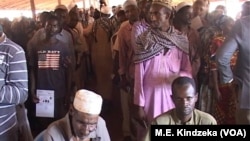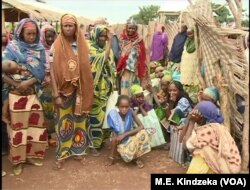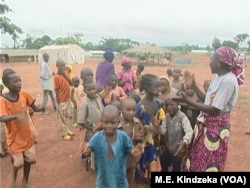Cameroon says there has been an influx of refugees from the Central African Republic (CAR) after several armed militias in the CAR rejected the president's new cabinet as not representative enough, sparking fears of renewed fighting. The U.N. refugee agency, or UNHCR, is trying to take care of them.
Some of the refugees are seeking help at the Garoua Boulay health center. The center receives an average of 30 patients daily, but this Tuesday it has received 70 people.
Nurse Luka Mvondo said a majority of them are children from the CAR who need rest after covering long distances on foot.
He said all sick refugees who submit their UNHCR identification cards are treated free of charge as per an agreement between the government of Cameroon and the United Nations.
The government of Cameroon says hundreds of returning and new refugees have crossed over from the CAR since March 5, when armed groups blocked a road in the western CAR to show their dissatisfaction with a new cabinet formed by President Faustin Archange Touadera.
Only six of the 14 armed groups that signed a peace and national reconciliation accord in Khartoum on February 6 are represented in the cabinet.
One group, the Central African People’s Democratic Front, accused the president of failing to comply with the Khartoum peace agreement, which they say requires an all-inclusive government with representatives from all armed groups that signed the deal.
Ngabede Bachirou fled to Cameroon because, he said, there are conflicts in the making unless Touadera quickly corrects his errors.
He said he is very grateful the people and the government of Cameroon have received him and his two children. He said he is particularly happy because his children have been admitted in school so they can have their education and secure their future.
Jacques Boyer, the Unicef resident representative in Cameroon, said the refugees are being taken care of despite the limited resources that are available.
He said besides providing humanitarian assistance to the refugees fleeing to safety as fear continues to grip CAR residents, it is necessary to reinforce the resilience of the host populations so they are able to handle the different economic, social and environmental shocks.
The CAR has been wracked by fighting since rebels overthrew President Francois Bozize in March 2013. The U.N. reports that in 2018, some 650,000 Central Africans were internally displaced and 546,000 were refugees in neighboring countries, with more than 300,000 in Cameroon.
An earlier version of this story incorrectly identified Jacques Boyer. He represents Unicef.






